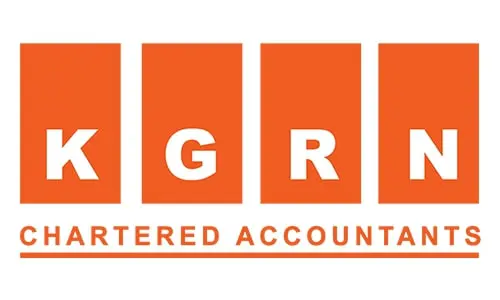Essentially, internal auditing is the process of examining and improving the operations of a company’s business components, such as its internal controls, compliance with regulatory requirements, corporate governance, and accounting systems, in order to add value to the company by increasing its profitability. As part of our internal auditing services, we look into the different business activities and internal controls of the organisation in question.
The Purpose of Internal Auditing
Our primary goal is to supply the company with tools that will enable it to increase the efficiency of its operational processes. We discover issues and flaws and attempt to correct or remove them as quickly as possible.
We look into whether or not all of the company’s acts are in compliance with the law. Our services also include financial reporting and asset protection for the company.
We provide management with confidence in our Internal Audit Services and External Audit Services by ensuring that internal controls are appropriate and functioning effectively, and that the organisation is strong enough to meet the changing demands of the external business and regulatory environments.
About our internal audit service
Within the context of the current climate, the implementation of an internal auditing programme is without a doubt essential. Continuous change is occurring in the world as a result of the introduction of new technical developments and innovations. In every business, the goal is to improve upon the previous day’s performance. In the modern workplace, it is essential to make use of many technologies, including automation, new procedures, and new procedures in general.
When your company’s operations are efficient, you may be able to increase revenues while still meeting your organization’s goals and objectives. Our internal audit service will assist you in analysing your company’s operations, identifying control gaps, and implementing appropriate measures to improve operational efficiency.
We provide you with specialised internal auditor resources, cutting-edge methods, and customised technology in order to guarantee your success.
Our initial objective is to get acquainted with your company. Then, with the help of our Dubai services, we build a plan that is in line with the goals of your organisation.
Process of Internal Audit
- Co-sourcing
- Designing and implementing an internal control framework are two important tasks.
- Special Case Investigations are conducted on a case-by-case basis.
- Process Improvement in the Business Environment
- Engagements in the Following-Up Phase
KGRN internal audit services are often divided into four stages.
Planning
The primary objectives and scope of our service are defined in this initial phase of our internal audit approach. At the beginning of the planning phase, we go through crucial information such as laws and regulations as well as corporate policies. We also look at industry standards and processes, among other things.
In addition, we examine previous audit reports and recommend areas for improvement as a result of our findings. Our internal audit strategy is well-defined and includes a budget and timeframe, among other things. In addition, we go through the criteria, access, and information that will be required to conduct the audit.
Fieldwork
Internal audits are carried out at this level by our audit team. During this step, we interview employees from a variety of different company departments. This is necessary to ensure that we have a thorough understanding of your procedures and controls.
We scrutinize the supporting documents and artefacts before putting the controls through their paces for a certain amount of time and evaluate their effectiveness.
We deliver internal audit working papers, which contain further suggestions, based on the work that has been completed.
Reporting
We make every attempt to give informative reports that are easy to understand and that provide information in a simple manner. In addition, the internal audit report offers real, actionable suggestions that can help the company go forward.
We discuss the initial draught, have management go at it, and then finalise the document.
Follow-up
Because it informs us whether or not the suggestions included in the audit report were executed, the follow-up phase is crucial. Following up on the results has enabled us to have a deeper knowledge of the company’s governance across numerous deployments, according to the findings. We take this step seriously since it informs a firm about the real progress being made in its business operations and operations.
Methodologies of Internal Auditing
Our internal auditors are well-versed in the concepts of corporate governance as well as risk management methodologies and procedures. We assess a company’s business processes, find possibilities for process improvement, and then propose and execute those improvements. We also provide process outsourcing services.
Our auditors conduct investigations into internal processes and provide recommendations for improvement. We also look at how well management directions are implemented and how successful they are.
In addition to doing risk assessments, our risk management specialists design a complete risk-based assurance strategy. In addition, our internal auditing team examines and makes recommendations on regulatory compliance requirements.
Internal audit plans are automated via the use of information technology, and business intelligence tools are used to monitor the organization’s day-to-day operations.
Risk-based internal audit
The primary goal of risk-based internal auditing is to identify and reduce risks associated with the operation of a company’s activities. It is carried out by evaluating the present risk management framework and making improvements in response to the deficiencies that have been found.
We also compute the company’s prospective risk appetite, which is the amount of risk that the business is ready to absorb in the future. In addition to the amount of total capital, borrowing capacity, liquid assets, management attitude, industry type, and business character, among other criteria, it is influenced by a range of other elements.
In addition, our risk-based internal audit takes into account the following two major factors:
A approach that minimises both the likelihood of failure and the consequences of failure is sought. We take great effort to consider all possible dangers as we build our strategy and tactics. We are primarily concerned with the fundamental and residual hazards of the situation.
We identify the activities or controls that are lacking, which results in an increase in inherent risk. We took all necessary preparations to keep the threat at bay. Whenever hazards continue to exist after implementation, we categorise them as Residual Risk and try to decrease them even more.
As a whole, our objective will be to eliminate or, at the at least, reduce the potential and effect of as many risks as we can find and eliminate them completely. Using our risk-based internal audits in dubai, firms will be able to better control risks while increasing profits.






